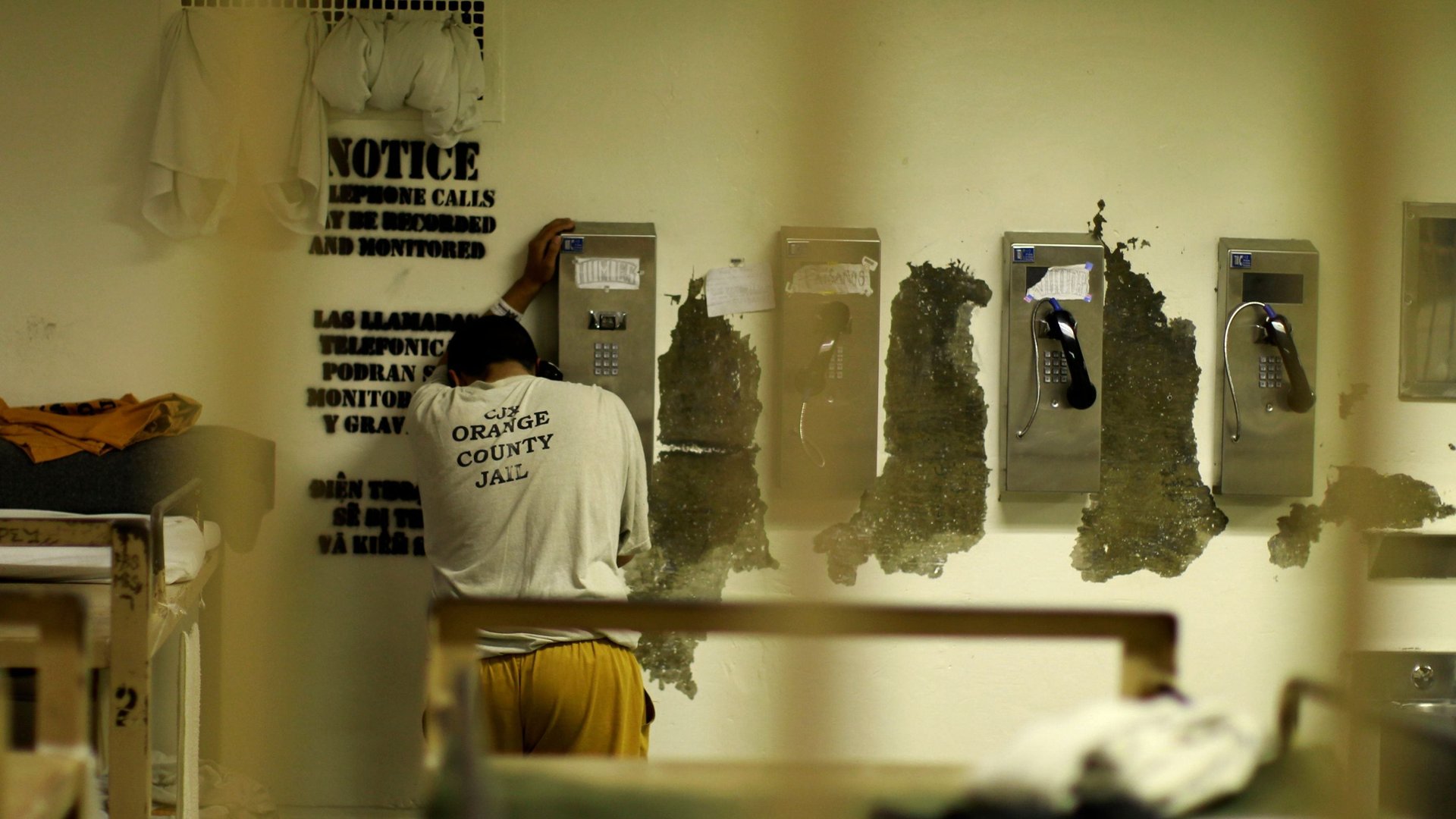It costs a fortune to call someone from a US jail
In Arkansas, it costs almost $15 to make a 15-minute phone call from a local jail. And that’s just the average—the highest bill in the state a new report has found reached nearly $25. These are costs put largely on people who are awaiting trial and often can’t afford to post bail, making for another exploitative feature of the US criminal justice system.


In Arkansas, it costs almost $15 to make a 15-minute phone call from a local jail. And that’s just the average—the highest bill in the state a new report has found reached nearly $25. These are costs put largely on people who are awaiting trial and often can’t afford to post bail, making for another exploitative feature of the US criminal justice system.
There’s been some progress in lowering costs of phone calls from prisons that hold convicted inmates. Yet the advocacy group Prison Policy Initiative has found that across the US, costs of in-state phone calls in jails—where those being held are presumed innocent or are serving short sentences—remain exorbitant. What’s more, private companies that provide prison services charge varying fees for things like making a call, opening a phone account, and putting money into the account.
On average, an in-state phone call from a jail costs three times as much as one from prison, the report found. The national average for a 15-minute call from jail is $5.61. In Montana, that average is $9.24, and in Michigan, $12.03.
“Charging pretrial defendants high prices for phone calls punishes people who are legally innocent, drives up costs for their appointed counsel, and makes it harder for them to contact family members and others who might help them post bail or build their defense,” write the report’s authors, Peter Wagner and Alexi Jones. “It also puts them at risk of losing their jobs, housing, and custody of their children while they are in jail awaiting trial.”
Defendants who enter the criminal-justice system generally are already financially disadvantaged and every phone call, including those to arrange child care or inform their employers about their situation, puts a strain on their limited resources.
In prisons, overall, these costs are smaller, thanks in big part to government regulation, a product of years of advocacy by families and reform groups. Similar efforts to cap in-state jail call fees have failed, after opposition from the industry.
The report notes that states have larger budgets and more negotiating power with the private contractors than counties or cities, legislatures pay more attention to the issue on a state level, and families whose loved ones are incarcerated for longer periods in prisons can exert more political pressure.
The prison telecommunications industry, long seen as extremely exploitative by advocates, is increasingly dominated by two giants. GTL and Securus sell officials on bundles of services, including video visitation, or tablet and email systems, and payment services, all of which also end up racking up high fees for families.
Both companies are also pushing biometric voice signatures of the incarcerated, The Intercept and The Appeal recently reported. The “voice print” of a caller within a prison—and sometimes of those outside as well—is created and stored in a database, sometimes without their knowledge. This raises particular concerns in the case of jails, where voice-recognition technology is used on those who yet to have been convicted—and may never be.